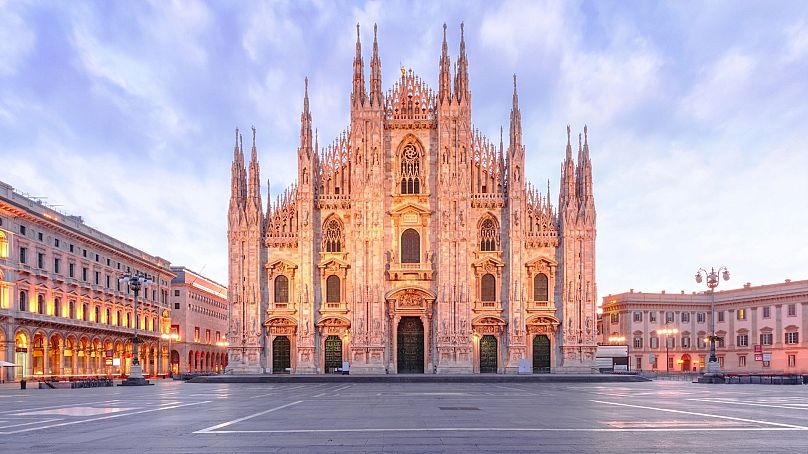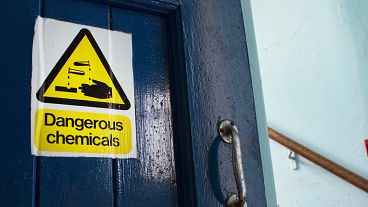There was a significant drop in pollution in cities like Paris, Milan and Barcelona.
More than 800 deaths may have been avoided thanks to better air quality during Europe's first coronavirus lockdown, according to the European Union's Copernicus Climate Change Service (CAMS).
By comparing people's exposure to air pollution between February and July of 2020 across 47 major cities, scientists concluded that government measures to limit the spread of the virus protected people from deadly pollution.
The peer-reviewed study found that school closures, stay-at-home policies and cancelling events had the strongest impact on levels of nitrogen dioxide (NO2), a noxious gas largely generated by cars.
Domestic and international travel curbs conversely showed little impact on local air pollution.
Nitrogen dioxide is linked to some respiratory and heart conditions and, according to the European Environment Agency (EEA), is responsible for 50,000 premature deaths in the EU every year.
The study said cities in France, Spain and Italy saw NO2 levels fall between 50 per cent and 60 per cent during the period. The authors based their estimate of avoided deaths on observed changes in daily concentrations of pollutants as well as exposure, CAMS reported.
The intensity and timing of the reduction in air pollution was studied along with the impact on short-term mortality.
Paris, London, Barcelona and Milan were among those that avoided the most deaths due to government curbs.
"The effectiveness of certain measures is clear to see," CAMS director Vincent-Henri Peuch said, calling the findings "extremely significant".
Professor Antonio Gasparrini from London School of Hygiene and Tropical Medicine (LSHTM), which collaborated on the research, added the information could be used to design better policies to tackle air pollution.
"This 'natural experiment' has given us a glimpse of how air quality can be improved by drastic public health measures that would be difficult to implement in normal times," he said.
The EEA last December estimated that exposure to fine particulate matter caused some 307,000 premature deaths across the bloc in the year before the pandemic.




